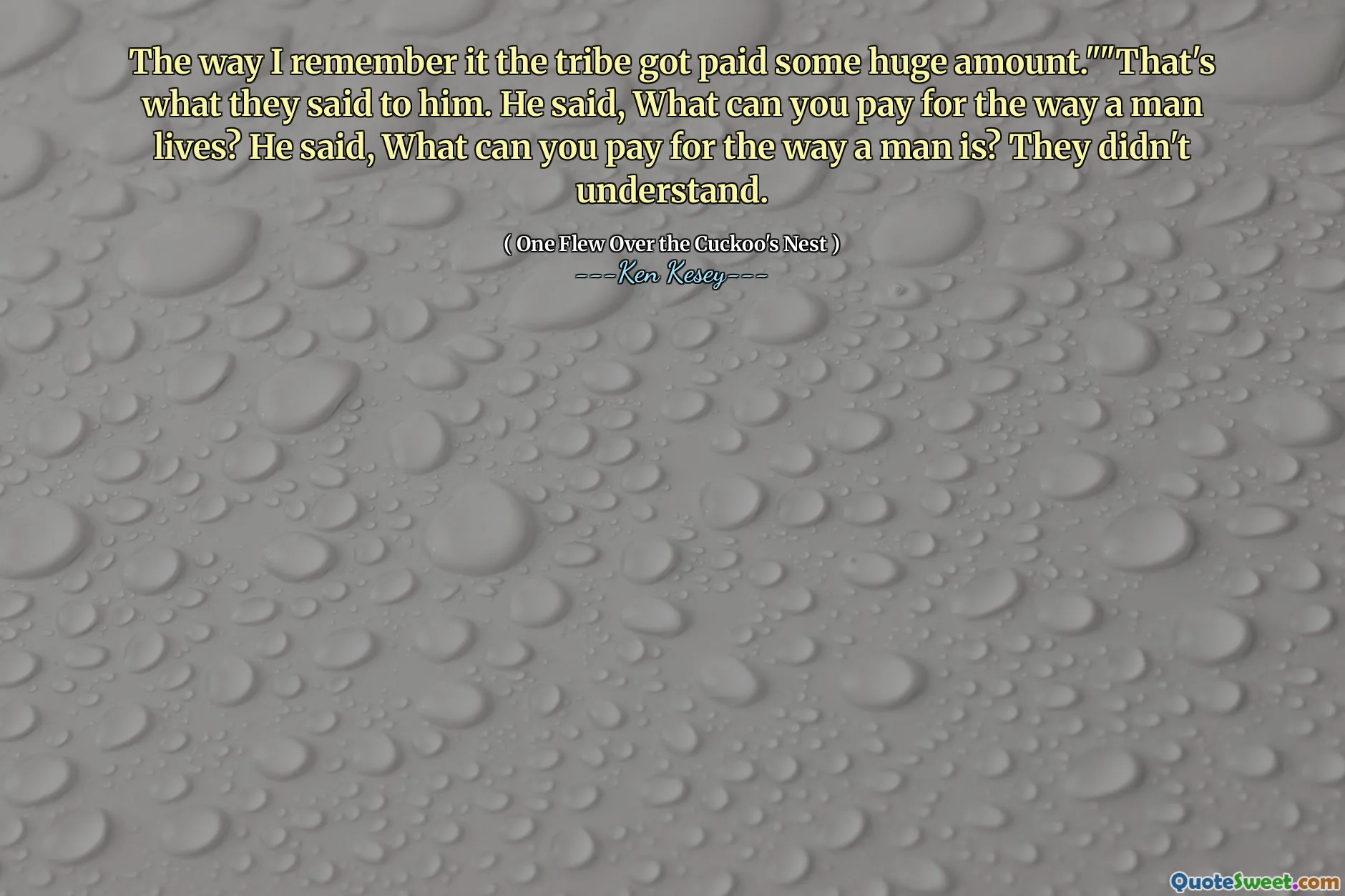
The way I remember it the tribe got paid some huge amount.""That's what they said to him. He said, What can you pay for the way a man lives? He said, What can you pay for the way a man is? They didn't understand.
In Ken Kesey's "One Flew Over the Cuckoo's Nest," a profound conversation highlights the value of human experience versus material compensation. The narrative presents a scene where the protagonist reflects on the tribe receiving a substantial sum of money. However, he questions the adequacy of monetary payment for the essence of a person's life and character, suggesting that true worth cannot be measured in financial terms.
This dialogue underscores a fundamental disconnect between the tribe's perspective and the protagonist’s deeper understanding. The exchange emphasizes that while financial transactions can signify value, they often fail to capture the intricate realities of individual existence and identity, illustrating a poignant critique of society’s transactional nature.
